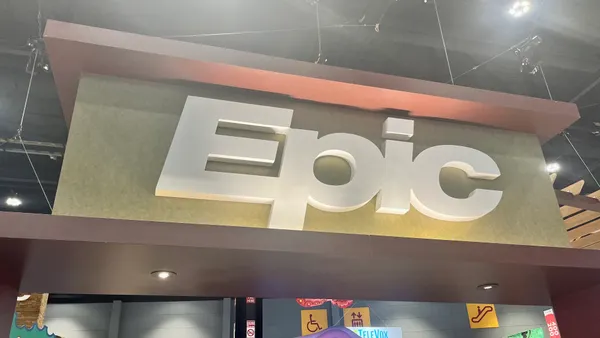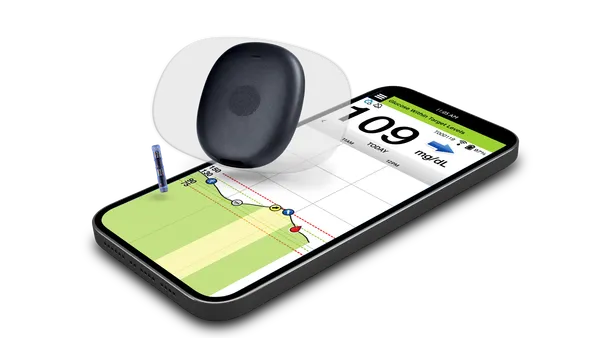Dive Brief:
- Medical speech recognition company Nuance Communications said Monday it plans sell its AI-based speech-to-text system automating physician note taking to health systems nationwide.
- The technology, built in partnership with Microsoft, includes a wall-mounted device with microphones to record each patient interaction — the company contends with their explicit consent — before uploading the transcript into the EHR.
- Clinical assistants, many of which rely on voice-to-text software, are en vogue as tech-savvy players look to ease EHR burden for physicians.
Dive Insight:
Health IT companies and a handful of startups are racing to saturate the nascent market — many with AI-enabled technology to automate route data entry requirements. Major technology companies like Microsoft, Google, Apple and Amazon have all developed or are backing speech assistants as competition to automate the time-intensive process of inputting and managing patient records heats up.
A number of hospitals have said they plan to use Nuance's technology, including Catholic player SSM Health, four-state system Novant Health and Chicago-based Rush University Medical Center. SSM Health said it would pilot the product in clinics in Missouri, Oklahoma and Wisconsin beginning next month.
Nuance has received a "tremendous buildup of demand" and interest from other systems, Peter Durlach, the company's senior vice president of strategy, told Healthcare Dive. Though the executive declined to give a more specific figure, he said a "multiple" of the three providers cited in Monday's release are very close to signing installation contracts.
Nuance's software uses neural networks to map a patient-physician conversation into a note in the doctor's EHR. In the early stages, it includes a quality review where the accuracy of the note is checked by people employed by Nuance. If they find an error, they flag it for the AI, allowing the algorithm to learn from its mistakes.
"Over time, the software got so good, we didn't need the human anymore for the vast majority of physicians in the U.S.," Durlach said. Nuance does not yet publicly release its accuracy metrics.
The product will be sold in five specialties: orthopaedics, ophthalmology, dermatology, podiatry and otolaryngology and is targeting an expansion to at least 12 more by the end of this year, followed by an additional wave of 18. The company is also exploring the use of its software in primary care offices.
Burlington, Massachusetts-based Nuance's so-called ambient clinical intelligence product is built on Microsoft Azure. Health systems pay for both hardware and software in a subscription model, Durlach said.
Grand View Research estimates the speech and voice recognition market will reach $31.8 billion by 2025 — but the space has quickly become crowded with notable players like Google-backed, voice-enabled digital assistant Suki, Apple Watch-supported platform Notable and AWS' Transcribe Medical.
Nuance contends it doesn't use patient data for any use other than training its algorithm. Durlach touted the company's abilities against rivals like Suki and Notable, but said offerings from cloud players like Amazon and Google are competitive.
The holy grail of clinical documentation software is being able to pull structured data from the transcribed note and automatically input it into the correct EHR field without any human input.
Durlach claims the company is "well on its way," noting industry could expect versions this year for some specialties that can pull out a number of significant data to start populating other areas, such as queuing up orders or adding a diagnosis to a problem list.













